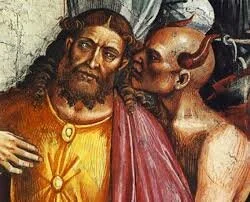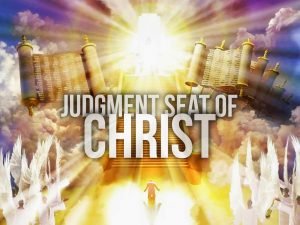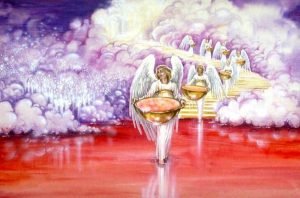Table of Contents
Introduction
The approach here looks carefully at the passages that speak directly and clearly about the rapture to determine which view they more strongly support. Once we understand these clear passages we can begin to discuss the other less clear passages.
The clearest rapture passages are found in 1 Corinthians 15 and 1 Thessalonians 4. These passages must form the starting point of our exploration.
Following close behind them should be the teaching of Jesus in response to a direct question about the end of the age and His second coming. These passages are the most detailed we have and are intended to answer the very question we are exploring – when will Jesus return for His church.
1 Corinthians 15, 1 Thessalonians 4 and Rev 11
1Co 15:51-52 NKJV Behold, I tell you a mystery: We shall not all sleep, but we shall all be changed— 52 in a moment, in the twinkling of an eye, at the last trumpet. For the trumpet will sound, and the dead will be raised incorruptible, and we shall be changed.
1Th 4:15-17 NKJV For this we say to you by the word of the Lord, that we who are alive and remain until the coming of the Lord will by no means precede those who are asleep. 16 For the Lord Himself will descend from heaven with a shout, with the voice of an archangel, and with the trumpet of God. And the dead in Christ will rise first. 17 Then we who are alive and remain shall be caught up together with them in the clouds to meet the Lord in the air. And thus we shall always be with the Lord.
Rev 11:15-19 NKJV Then the seventh angel sounded: And there were loud voices in heaven, saying, “The kingdoms of this world have become the kingdoms of our Lord and of His Christ, and He shall reign forever and ever!” 16 And the twenty-four elders who sat before God on their thrones fell on their faces and worshiped God, 17 saying: “We give You thanks, O Lord God Almighty, The One who is and who was and who is to come, Because You have taken Your great power and reigned. 18 The nations were angry, and Your wrath has come, And the time of the dead, that they should be judged, And that You should reward Your servants the prophets and the saints, And those who fear Your name, small and great, And should destroy those who destroy the earth.” 19 Then the temple of God was opened in heaven, and the ark of His covenant was seen in His temple. And there were lightnings, noises, thunderings, an earthquake, and great hail.
Pretribulationists summarily dismiss the fact that the last trumpet is explicitly mentioned as the moment when the church is raptured. I would more readily accept this dismissal if the only similarities between these two rapture passages were the mention of a trumpet. But there are numerous other similarities that, when viewed together, make a compelling argument. The similarities are striking:
As can be seen, the well known rapture passages in 1 Thessalonians and 1 Corinthians have notable similarities. But more interesting are the significant similarities with the 7th (and last) trumpet in Revelation 11. In both passages there is a trumpet, a resurrection, loud voices, angels and the living rewarded/raptured. That should come as no surprise given how Rev 11.15 began:
“The kingdoms of this world have become the kingdoms of our Lord and of His Christ, and He shall reign forever and ever!”
Matthew 24.29-31
We can now overlay what Jesus had to say about His coming with what we have learnt about the rapture from the passages above.
Mat 24:29-31 NKJV “Immediately after the tribulation of those days the sun will be darkened, and the moon will not give its light; the stars will fall from heaven, and the powers of the heavens will be shaken. 30 Then the sign of the Son of Man will appear in heaven, and then all the tribes of the earth will mourn, and they will see the Son of Man coming on the clouds of heaven with power and great glory. 31 And He will send His angels with a great sound of a trumpet, and they will gather together His elect from the four winds, from one end of heaven to the other.
Again, there are striking similarities between Mat 24:29-31 and the well known rapture passages (see the above table). All included angels, a trumpet, clouds and of course the gathering of believers. Note that all these things happen ‘after the tribulation of those days’. This is exactly what a post-tribulationist would expect.
Jesus gives us a detailed account of the ‘sign of Your coming, and of the end of the age’. In this account He describes in verse 31 the gathering of His elect from throughout the ‘earth’ and ‘heaven’. This sounds just like the rapture. In fact, this is the only reference in the passage that could be construed as referring to the rapture – and it happens ‘after the tribulation of those days’.
The pretribulationist on the other hand finds no reference to a secret rapture or to two phases of the second coming. These ideas are never expressed clearly in the scriptures.
Matthew 13.24-30
Mat 13:24-30 NKJV Another parable He put forth to them, saying: “The kingdom of heaven is like a man who sowed good seed in his field; 25 but while men slept, his enemy came and sowed tares among the wheat and went his way. 26 But when the grain had sprouted and produced a crop, then the tares also appeared. 27 So the servants of the owner came and said to him, ‘Sir, did you not sow good seed in your field? How then does it have tares?’ 28 He said to them, ‘An enemy has done this.’ The servants said to him, ‘Do you want us then to go and gather them up?’ 29 But he said, ‘No, lest while you gather up the tares you also uproot the wheat with them. 30 Let both grow together until the harvest, and at the time of harvest I will say to the reapers, “First gather together the tares and bind them in bundles to burn them, but gather the wheat into my barn.” ‘ “
Jesus gives the interpretation of the parable:
Mat 13:36-43 NKJV Then Jesus sent the multitude away and went into the house. And His disciples came to Him, saying, “Explain to us the parable of the tares of the field.” 37 He answered and said to them: “He who sows the good seed is the Son of Man. 38 The field is the world, the good seeds are the sons of the kingdom, but the tares are the sons of the wicked one. 39 The enemy who sowed them is the devil, the harvest is the end of the age, and the reapers are the angels. 40 Therefore as the tares are gathered and burned in the fire, so it will be at the end of this age. 41 The Son of Man will send out His angels, and they will gather out of His kingdom all things that offend, and those who practice lawlessness, 42 and will cast them into the furnace of fire. There will be wailing and gnashing of teeth. 43 Then the righteous will shine forth as the sun in the kingdom of their Father. He who has ears to hear, let him hear!
This passage explicitly states that the righteous will not be gathered before the wicked – they will be gathered at the same time. This directly contradicts the view that the rapture gathers the righteous years before the wicked are gathered.
Matthew 13.47-49
Mat 13:47-50 NKJV “Again, the kingdom of heaven is like a dragnet that was cast into the sea and gathered some of every kind, 48 which, when it was full, they drew to shore; and they sat down and gathered the good into vessels, but threw the bad away. 49 So it will be at the end of the age. The angels will come forth, separate the wicked from among the just, 50 and cast them into the furnace of fire. There will be wailing and gnashing of teeth.”
This passage states that at the ‘end of the age’ both the ‘good’ and the ‘bad’ are gathered at the same time. This contradicts the pretribulation teaching that maintains that the good are gathered first in the rapture, then the bad are gathered at Jesus second coming years later.
2 Thessalonians 1.6-10
2Th 1:6-10 NKJV since it is a righteous thing with God to repay with tribulation those who trouble you, 7 and to give you who are troubled rest with us when the Lord Jesus is revealed from heaven with His mighty angels, 8 in flaming fire taking vengeance on those who do not know God, and on those who do not obey the gospel of our Lord Jesus Christ. 9 These shall be punished with everlasting destruction from the presence of the Lord and from the glory of His power, 10 when He comes, in that Day, to be glorified in His saints and to be admired among all those who believe, because our testimony among you was believed.
The Christian church is given ‘rest’ when the Lord is ‘revealed’ with His mighty angels taking vengeance on those that do not know God.
This is directly contradicted by the pretribulationist view that maintains that the church is given rest when Jesus comes secretly to rapture them away years before He is revealed from heaven with His mighty angels.
2 Thessalonians 2.1-3
2Th 2:1-3 NKJV Now, brethren, concerning the coming of our Lord Jesus Christ and our gathering together to Him, we ask you, 2 not to be soon shaken in mind or troubled, either by spirit or by word or by letter, as if from us, as though the day of Christ had come. 3 Let no one deceive you by any means; for that Day will not come unless the falling away comes first, and the man of sin is revealed, the son of perdition,
Pretribulationists believe that the ‘man of sin’ or the antichrist will be revealed only after the church has been removed through the rapture.
But in this passage Paul directs the church to look for the antichrist as a sign that the Lord has not come and they have not been left behind! The church will know that the rapture has not happened because the antichrist has not yet been revealed to them.
Indeed, Paul warns the Thessalonians not to be deceived by people who maintain that Jesus could come and they could be gathered before this key event. Ironically, this is exactly what the pretribulationist teaches!
Revelation 11.18
Rev 11:18 NKJV The nations were angry, and Your wrath has come, And the time of the dead, that they should be judged, And that You should reward Your servants the prophets and the saints, And those who fear Your name, small and great, And should destroy those who destroy the earth.”
This passages indicates that the dead are judged, and so be implication raised, at the time of the seventh trumpet. This then places the rapture no earlier than the middle of the tribulation, and possibly at the end.
Revelation 16.15
Rev 16:15 NKJV “Behold, I am coming as a thief. Blessed is he who watches, and keeps his garments, lest he walk naked and they see his shame.”
Mat 24:42-44 NKJV Watch therefore, for you do not know what hour your Lord is coming. 43 But know this, that if the master of the house had known what hour the thief would come, he would have watched and not allowed his house to be broken into. 44 Therefore you also be ready, for the Son of Man is coming at an hour you do not expect.
The church believes that Jesus will return unexpectedly for his people and that His coming for us is described as a ‘thief’. Rev 16.15 is very helpful because it tells us that Jesus has not yet come in this way but that He will do so soon.
This is very problematic for the pretribulationist because the verse is located between the 6th and 7th bowl judgments which is right at the very end of the tribulation period! If Jesus has not yet returned for us as a thief by this point then clearly the rapture has not happened.
The exhortation in this passage is very similar in language to Matthew 24 where Christian disciples are exhorted to ‘watch’.
This passage places the rapture at the end of the tribulation.
Matthew 25.1-13
Mat 25:11-13 NKJV “Afterward the other virgins came also, saying, ‘Lord, Lord, open to us!’ 12 But he answered and said, ‘Assuredly, I say to you, I do not know you.’ 13 “Watch therefore, for you know neither the day nor the hour in which the Son of Man is coming.
Pretribulationists maintain that Jesus will return secretly to rapture His church. After this event, those who were not ready will enter the tribulation period during which time they can repent of their unpreparedness. Those who missed Jesus’ first coming will thus have a second chance to make themselves ready for Jesus’ second (or for pretribulationist, His third) return.
The idea that those not ready when Jesus returns will have a second chance is found nowhere in the scriptures. In fact the opposite is emphasized. Because there is NO second chance you must always be ready. The virgins received no second chance. They could not enter through the back door, so to speak, three and half (or seven) years later.
Indeed, there is no instance anywhere in the NT that suggests that those who are not ready when Jesus returns will have a second chance to prepare themselves for an imagined second phase of his second return. But a secret and early rapture gives all those, believer and unbelievers alike, a second chance to prepare themselves for His next return.
Pretribulationist teaching directly contradicts this and gives people false comfort that even if they aren’t ready for His second return, they will still have time to repent and prepare themselves for His third return.
Matthew 24.4-31: ‘You, you, you, they’
Mat 24:4 NKJV And Jesus answered and said to them: “Take heed that no one deceives you.
Mat 24:6 NKJV And you will hear of wars and rumors of wars. See that you are not troubled; for all these things must come to pass, but the end is not yet.
Mat 24:9 NKJV “Then they will deliver you up to tribulation and kill you, and you will be hated by all nations for My name’s sake.
Mat 24:15 NKJV “Therefore when you see the ‘ABOMINATION OF DESOLATION,’ spoken of by Daniel the prophet, standing in the holy place” (whoever reads, let him understand),
Mat 24:20 NKJV And pray that your flight may not be in winter or on the Sabbath.
Mat 24:23 NKJV “Then if anyone says to you, ‘Look, here is the Christ!’ or ‘There!’ do not believe it.
Mat 24:25 NKJV See, I have told you beforehand.
Mat 24:26 NKJV “Therefore if they say to you, ‘Look, He is in the desert!’ do not go out; or ‘Look, He is in the inner rooms!’ do not believe it.
Mat 24:30 NKJV Then the sign of the Son of Man will appear in heaven, and then all the tribes of the earth will mourn, and they will see the Son of Man coming on the clouds of heaven with power and great glory.
This passage, like the sermon on the mount, was delivered to believing disciples (Mat 24:3). Jesus describes what they, His followers, could expect at the end of the age. We can see this through the repeated use of the word ‘you’.
Jesus speaks directly to His disciples using the word ‘you’ throughout this passage including after the reference to the ‘great tribulation’. However note how the usage changes in verse 30 to ‘they’. This is exactly what a postribulationist would expect. The disciples are present on earth before and after the tribulation and right up until Jesus gathers them at His return.
However this is not at all what the pretribulationist would expect since ‘you’ were raptured before verse 15!




